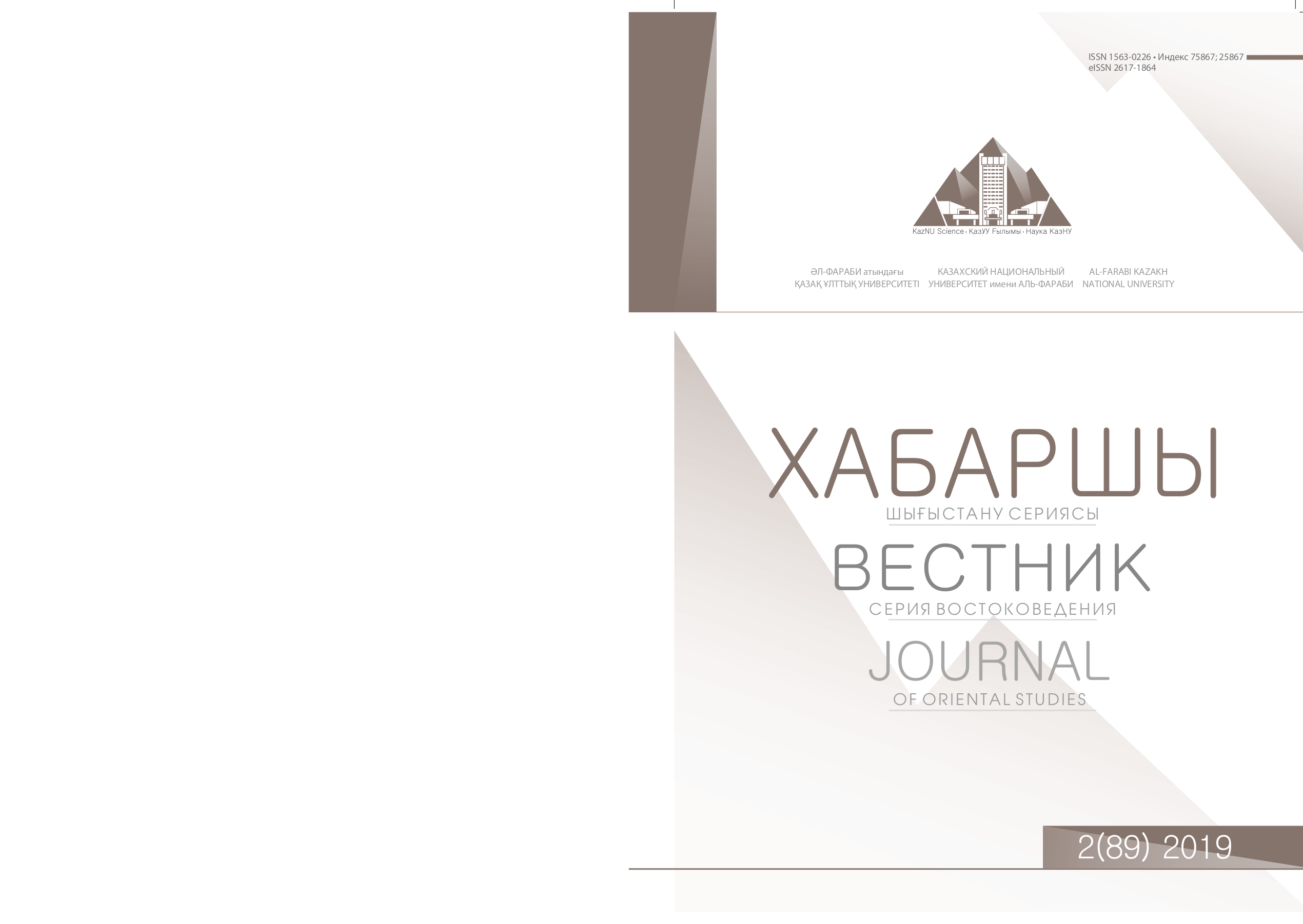The transferred plate of the national originality of the artistic translations (Park Wan Suh “Who ate up all the shinga?”)
DOI:
https://doi.org/10.26577/jos.v89i2.1390Abstract
The article considers the problem of national specifics in literary translation, which is regarded as an integral part of the modern literary process, promotes the mutual enrichment and interrelation between the world nations’ literatures and the development of international cooperation in science, culture and education. It is known that literary translation is a special kind of translation activity linked, on the one hand, to the secondary reproducing nature of translation, on the other hand in the process of translation to the need to create texts with the ability of direct aesthetic impact. Translator have to maintain a mediating authenticity, proximity to the original text, and at the same time to be able to create a work of art in target language and culture which will be equivalent to original. That is two divergent kinds of speech activities, the perception of the original text and the creation of translated text are interact and oppose during the translation process. The problem of transmission of cultural identity and the preservation of the original text unique flavor in foreign language was always an acute problem for translators. The issues related to the recreation of the socalled “unfamiliar reality” in the target language are most complex and at the same time relatively little developed. The article analyzes the translation of hieroglyphic phraseological units (HPU), culture of lexemesrealities and toponyms of Korean novel. Key words: hieroglyphic phraseological unit (IFE), intercultural communication, “the cultural connotation”, foreign language culture.














